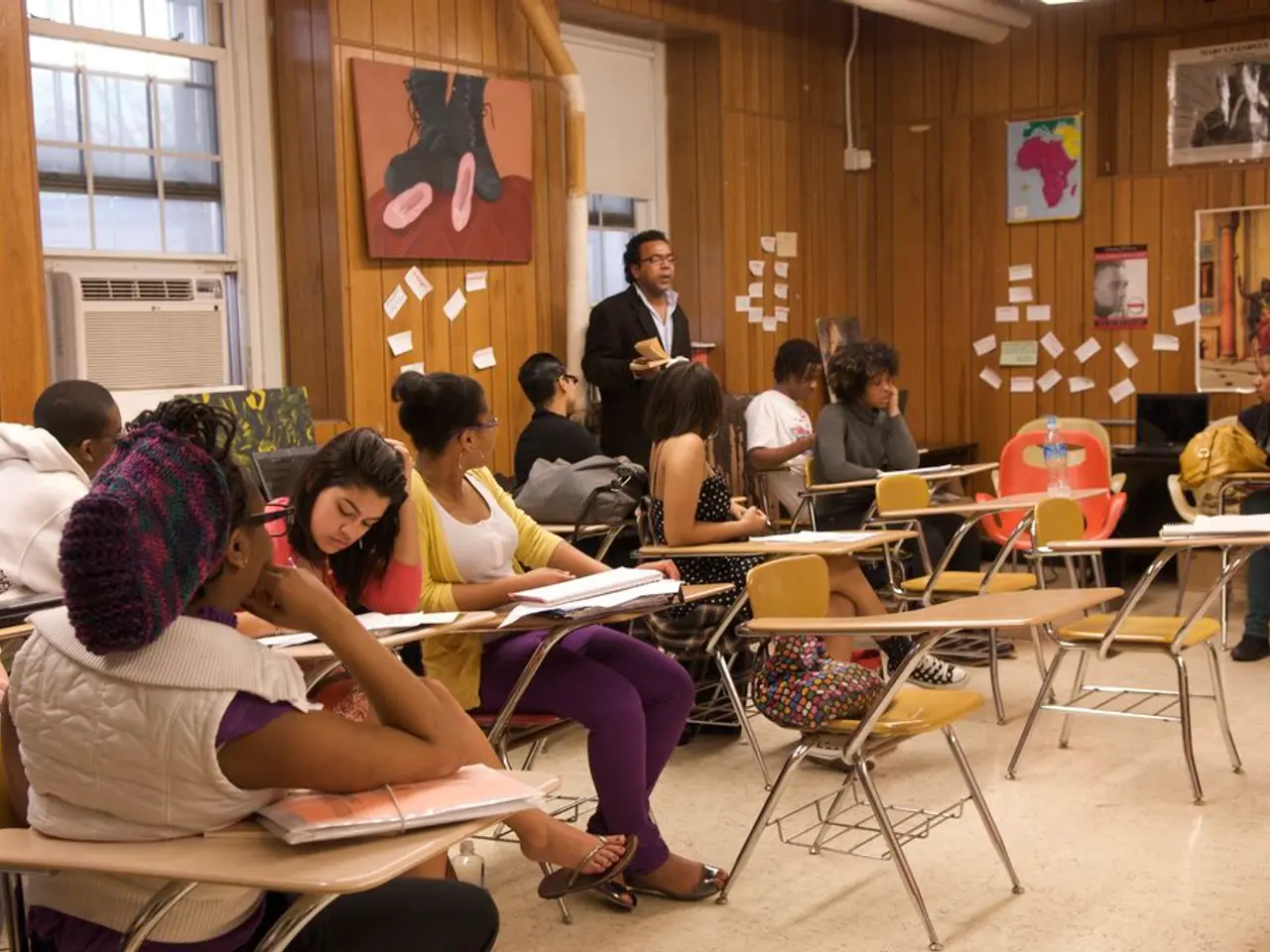Utilizing ChatGPT for Five Educational Approaches
In the ever-evolving world of education, a new tool is making waves: ChatGPT. This artificial intelligence model is being hailed as a potential game-changer, with the potential to make education more accessible for all.
Educators are embracing ChatGPT as a teaching aid, using it to help students with a variety of tasks. From summarising complex subjects to generating test questions, ChatGPT is proving to be a valuable learning resource.
One of the most intriguing uses of ChatGPT is in the realm of writing critiques. Torrey Trust, an education professor at the University of Massachusetts Amherst, and Jenith Mishne, director of Education Technology at Newport-Mesa USD in California, both suggest having students critique ChatGPT's writing. This approach encourages critical thinking about both writing and new technology.
However, it's important to note that while ChatGPT can check student text for grammar and spelling errors and offer advice, its suggestions are not always accurate. Students should approach its writing and coding advice with caution.
The use of technology in education, such as ChatGPT, can lead to valuable learning experiences. But it's crucial to address the ethical implications and proper usage of such tools. Lisa Zawilinski suggests discussing the tool with students without banning it. Instead, she advocates for a healthy dose of caution, encouraging students to practice digital literacy and appropriate skepticism when using ChatGPT.
Past attempts to ban tech tools have not been successful, highlighting the need for education systems to adapt and embrace the potential of these tools. In the case of ChatGPT, this means inviting students to participate in discussions about its use, encouraging them to properly access the tools at their disposal, and fostering an environment where digital literacy and critical thinking thrive.
For instance, using ChatGPT to teach code can show students the power of coding and make education more accessible. It can be particularly beneficial for students who might struggle with the subject matter, providing them with a supportive learning environment.
In conclusion, ChatGPT presents a promising opportunity for modern education. With a balanced approach that combines caution with encouragement, educators can leverage this tool to enhance learning experiences, foster critical thinking, and make education more accessible for all.






